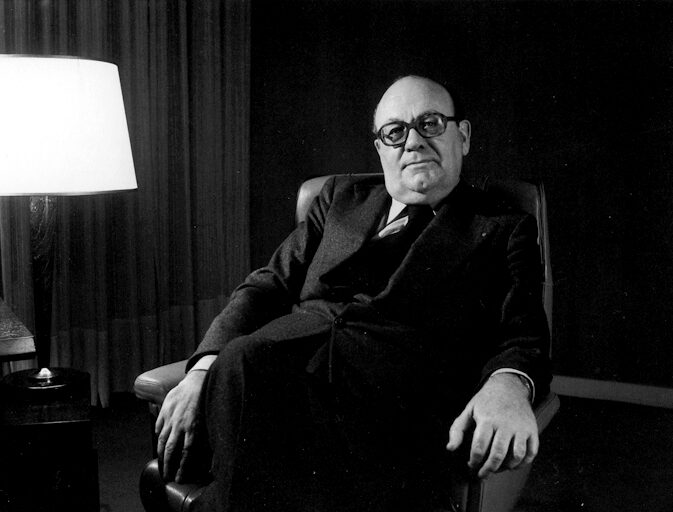The bosses speak out
Jacques Mandelbaum / Le Monde – October 19, 2007
In 1976, Gérard Mordillat and Nicolas Philibert, young assistant directors at the time, worked together on their first documentary feature, devoted to the bosses of leading French companies. Produced by the INA and completed in 1978, His Master’s Voice, perhaps even more so today because of its historical value, stands as an exceptional account of its times. First and foremost, because the two young directors obtained the agreement of twelve of the leading company managers of the day, something that is already quite astonishing.
The film’s other merit lies in the way in which it is shot and in the awareness that its directors had at the time of recording an important change in the French economic landscape, with the shift from enterprise capitalism to financial capitalism. With the ideals of May 1968 fading into the background and the presidency of Valéry Giscard d’Estaing, France witnessed the first stirrings of the neo-libertarian age.
Having observed the death throes of militant film, the dogmatism of its ideas and the fact that capitalism had already changed its face and taken by surprise all those who denounced the old-style bosses, Mordillat and Philibert reject the juxtaposition of the bosses and workers’ views and only let the employers speak, allowing them to express themselves freely and choose the setting and conditions of the interview. At most, at key moments, they introduce silent shots of production-line workers that are occasionally fairly cruel given the words that precede them.
This method is remarkable: what better way of showing an interviewee’s personality on screen than by leaving him in charge of a significant share of the staging, that of his own personality. These twelve bosses are thus invited to express themselves on their definition of power and their legitimacy, the role of the unions and the hypothetical possibility of self-management. The film as a whole is fascinating: it focuses on that specific moment at which the employers, while still subject to a certain modesty, prepare in the name of modernity to lay claim to its truth which is none other than that of profit.
In this way, His Master’s Voice occupies a position similar to that held in the political field by Raymond Depardon’s film about Valéry Giscard d’Estaing’s presidential campaign Une partie de campagne (1974).
This DVD allows us to discover a longer and unknown version of the film, initially destined for television where it was permanently censored. It is also well worth viewing the two special features that consist of an interview with the directors and the analysis of the film by the economist Frédéric Lordon who is opposed to the doctrinaire approach.
